Search
Search Results
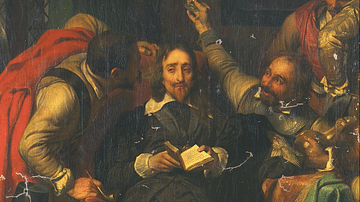
Definition
English Civil Wars
The English Civil Wars (1642-1651) witnessed a bitter conflict between Royalists ('Cavaliers') and Parliamentarians ('Roundheads'). The Royalists supported first King Charles I of England (r. 1625-1649) and then his son Charles II, while...
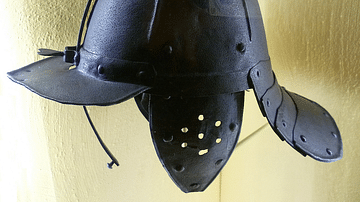
Article
Battle of Preston in 1648
The Battle of Preston between 17 and 20 August 1648 occurred during the English Civil Wars (1642-1651) and saw Oliver Cromwell lead Parliament's New Model Army to victory against an Anglo-Scottish army which supported King Charles I of England...
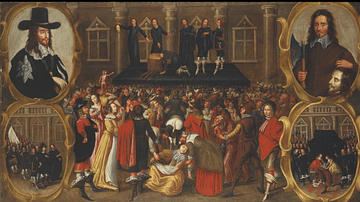
Article
Consequences of the English Civil Wars
The impact and consequences of the English Civil Wars (1642-1651) were many and far-reaching. Charles I of England (r. 1625-1649) was executed, and the monarchy was abolished. Oliver Cromwell (1599-1658) then headed the Republic as the Lord...
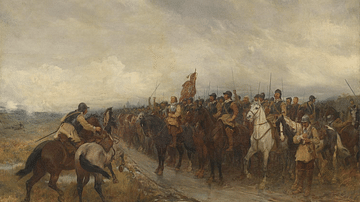
Article
Battle of Dunbar in 1650
The battle of Dunbar on 3 September 1650 between the English Parliament's New Model Army led by Oliver Cromwell (1599-1658) and Scotland's army led by David Leslie (c. 1600-1682) was one of the last major battles of the English Civil Wars...
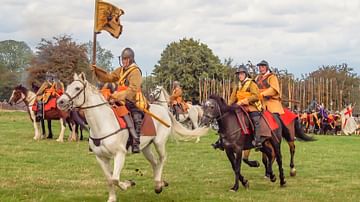
Article
Cavalry in the English Civil Wars
Cavalry regiments were an essential component of both Royalist and Parliamentarian field armies during the English Civil Wars (1642-1651). Armed with a sword, carbine, and a brace of pistols, cavalry riders evolved to become fast, lightly-armoured...
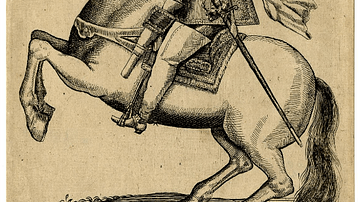
Article
Dragoons in the English Civil Wars
Dragoons were hybrid cavalry-infantry troops during the English Civil Wars (1642-1651). They usually dismounted before fighting and were used primarily as support troops. Dragoons were frequently tasked with capturing and holding strategically...
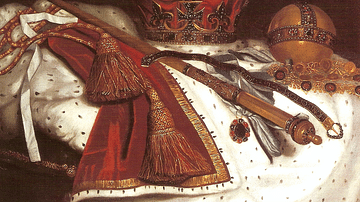
Article
Causes of the English Civil Wars
The English Civil Wars (1642-1651) were caused by a monumental clash of ideas between King Charles I of England (r. 1625-1649) and his parliament. Arguments over the powers of the monarchy, finances, questions of religious practices and toleration...
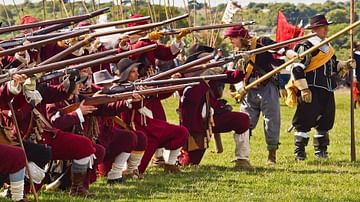
Article
Musketeers in the English Civil Wars
Musketeers played a vital role in the battles and sieges of the English Civil Wars (1642-1651). As the war dragged on, weapons became lighter and more accurate, and the musketeers became more capable of effective battlefield manoeuvres. Volley-fire...
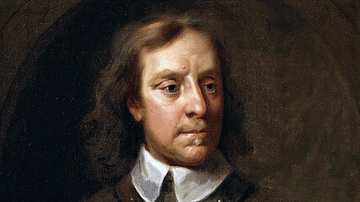
Definition
Oliver Cromwell
Oliver Cromwell (1599-1658) was an accomplished cavalry commander, then head of Parliament's New Model Army, and finally Lord Protector of England, Scotland, and Ireland. The latter title was awarded to Cromwell for life after the bloody...
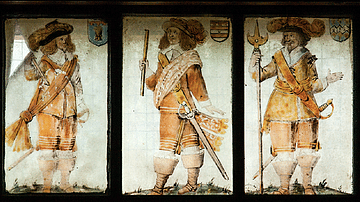
Image
English Civil Wars Soldiers
A detail of the Civil War memorial window showing different soldier types at St. Chad's Church, Farndon, Cheshire. Created after the Restoration of 1660.